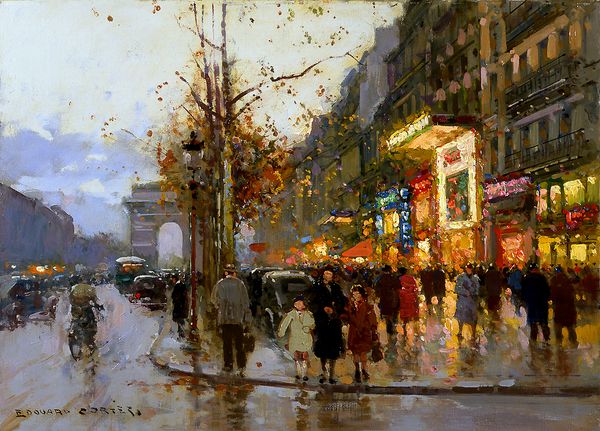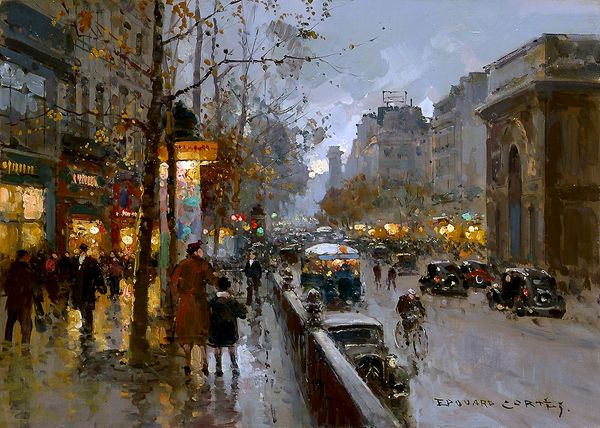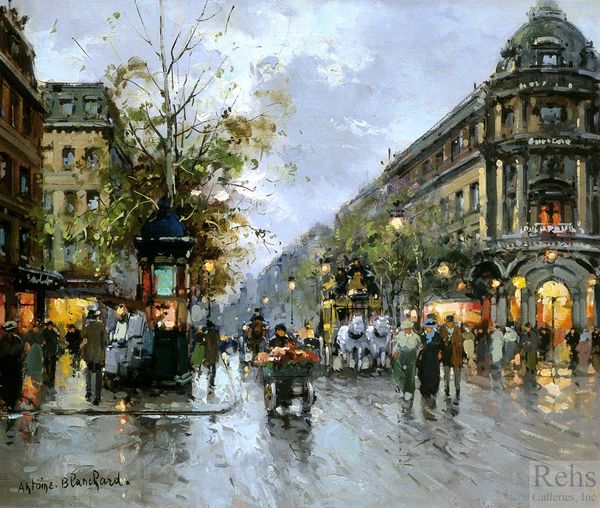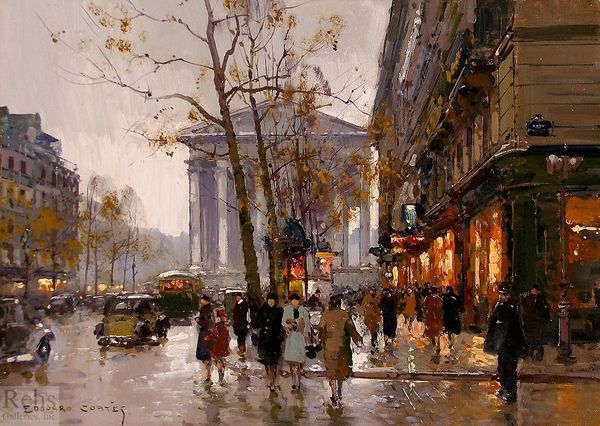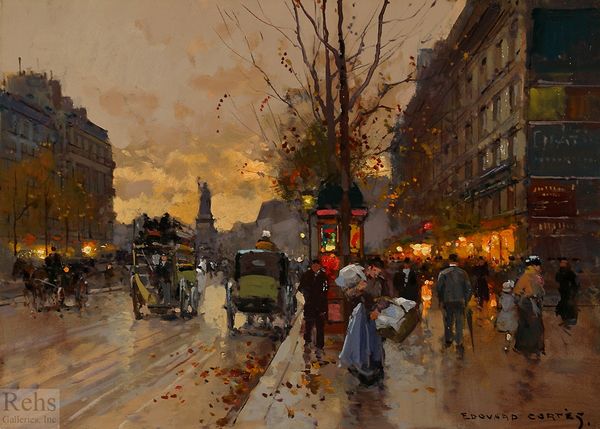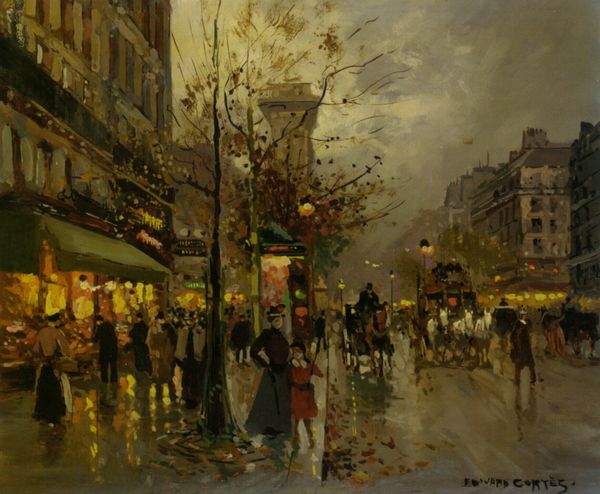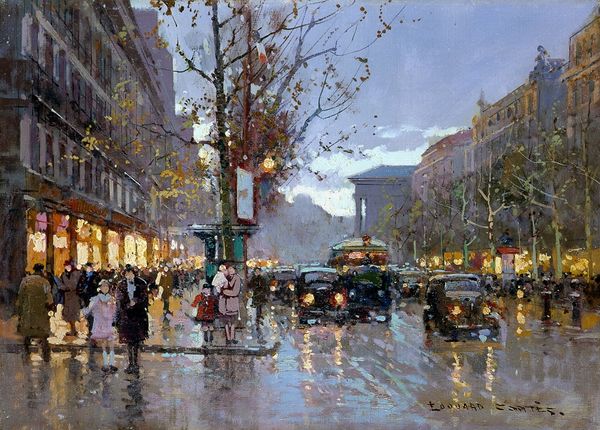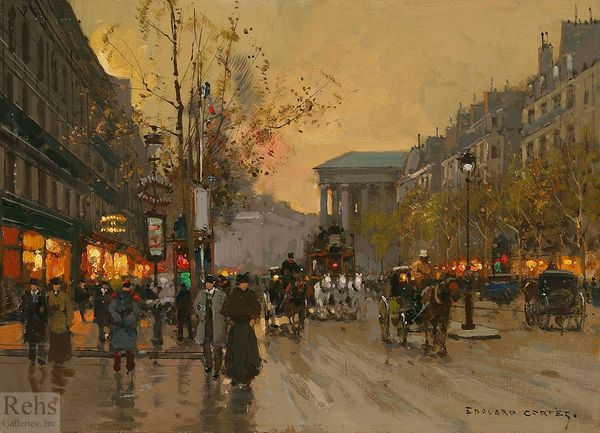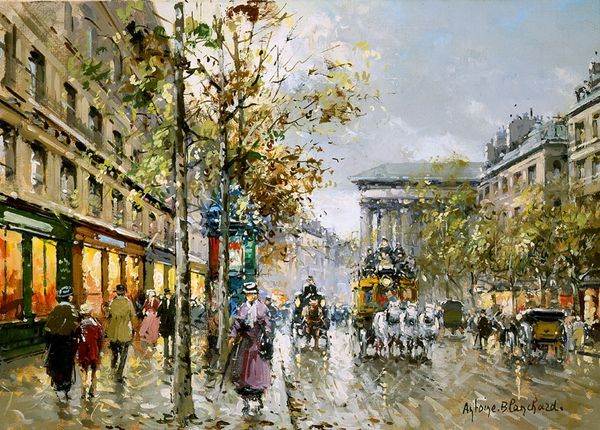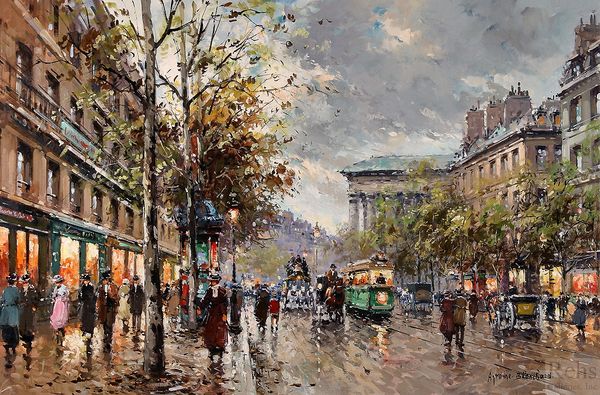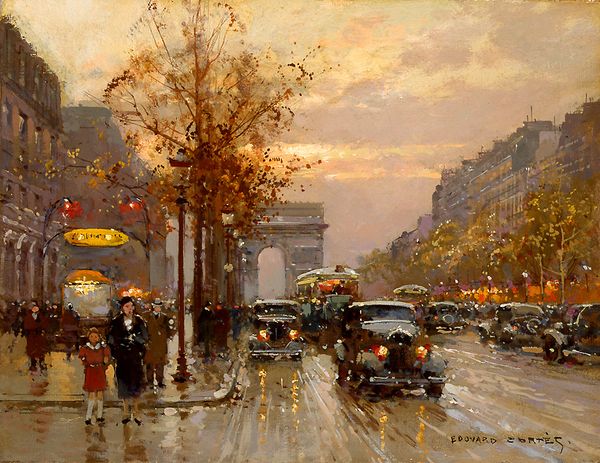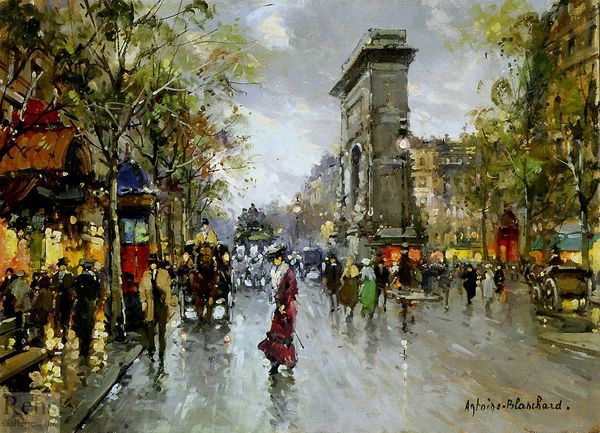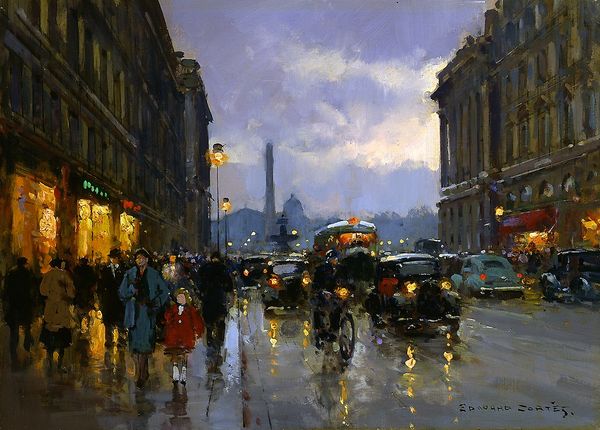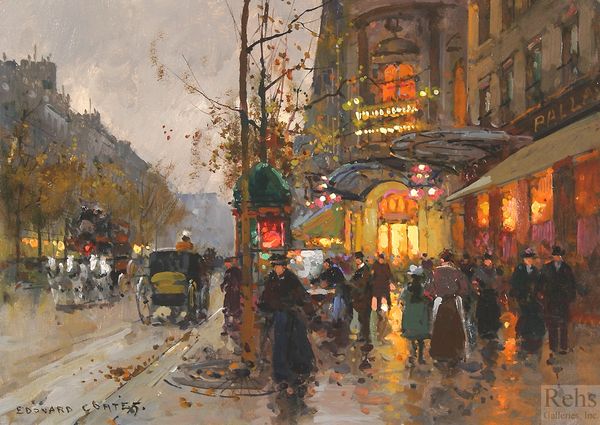
painting, oil-paint
#
cityscape
#
painting
#
impressionism
#
oil-paint
#
landscape
#
cityscape
#
genre-painting
#
post-impressionism
#
street
Copyright: Edouard Cortes,Fair Use
Editor: We’re looking at Édouard Cortès’ "Champs-Élysées," an oil painting evoking a rainy Parisian evening. I’m immediately struck by how the wet street reflects the light, blurring the boundaries between the physical and the ethereal. What elements jump out at you? Curator: Beyond the subject matter, I’m interested in the material conditions of this cityscape's creation. Think about the pigments Cortès used - their availability, cost, and how they were manufactured at the time. These all reflect specific industrial processes and a societal demand for representing urban life in a picturesque way. How does this commodification of Parisian scenery reflect broader trends in consumer culture? Editor: That’s fascinating! I hadn't considered the pigments themselves as part of the story. So, the rise of commercial paint production enabled artists like Cortès to mass-produce these cityscapes for a burgeoning middle class? Curator: Precisely. And look at the brushwork - the quick, impressionistic strokes. That technique, while aesthetically pleasing, also speaks to the speed of production. He had to work quickly to meet market demand. Is the painting perhaps less about individual expression, and more about the assembly-line production of 'art'? Editor: I see your point. It challenges the romantic ideal of the solitary artist. Could we also analyze how the painting's support, perhaps a pre-primed canvas, further streamlines the production process? Curator: Absolutely. The move towards standardized art materials had a profound impact, shaping not just the visual outcome, but the very notion of what it meant to "make art." This interplay between labor, material, and the market invites us to think critically about the construction of value in art. Editor: This perspective has definitely changed how I see the painting. I’m not just looking at a pretty scene anymore; I’m considering the whole economic ecosystem that made it possible. Curator: Exactly! It’s a shift from admiring to analyzing, focusing on production instead of reception, materiality, not divinity.
Comments
No comments
Be the first to comment and join the conversation on the ultimate creative platform.
